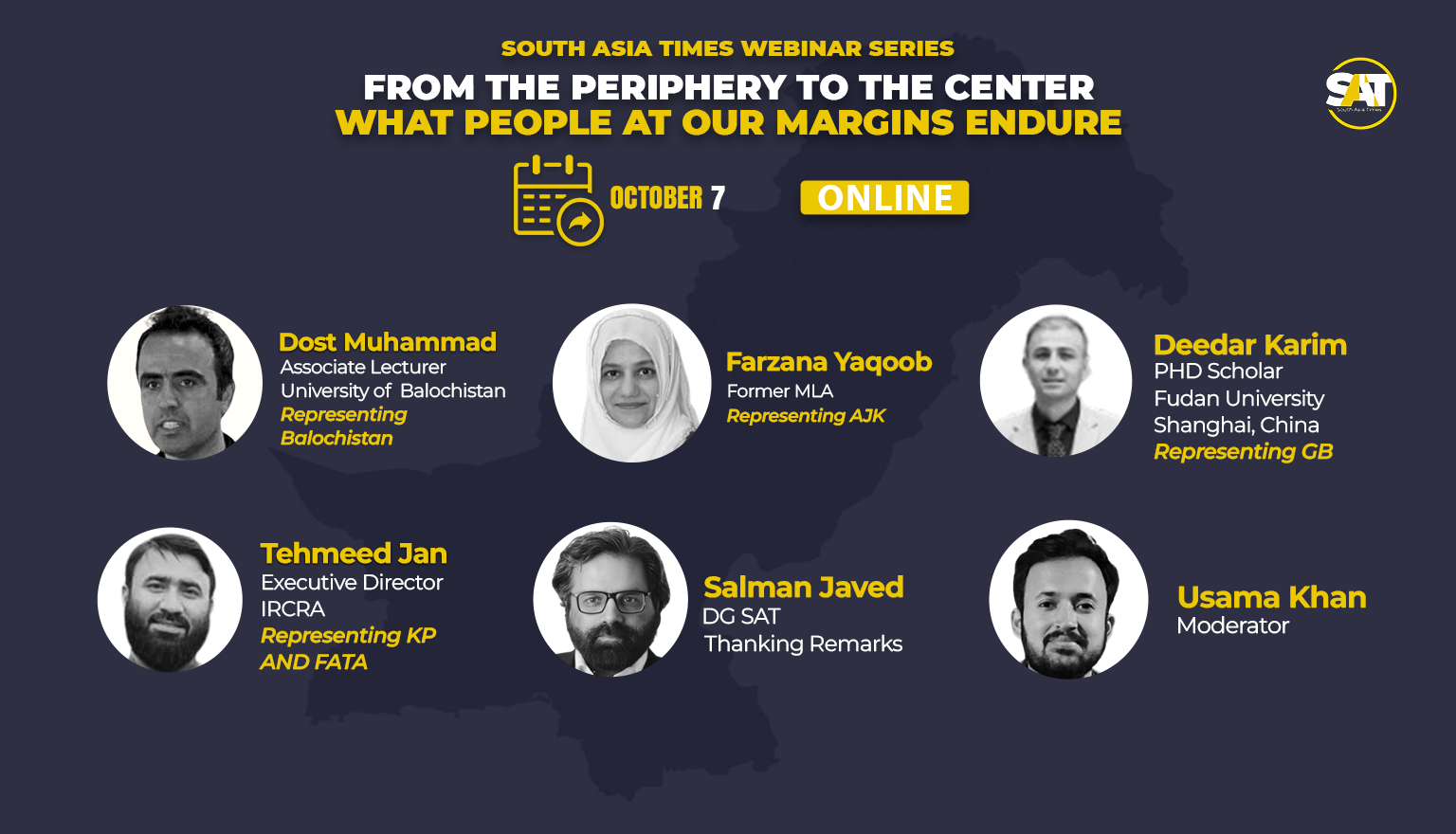
October 2025
Mr. Usama Khan, Director of SAT, opened the session by emphasizing the importance of re-centering Pakistan’s peripheries in national dialogue. He underscored that the objective was not to catalogue grievances but to identify shared pathways toward justice, inclusion, and reconciliation.
Mr. Tahmeed Jan, Executive Director of IRCRA and representative from KP and erstwhile FATA, detailed how renewed militant violence, poor reform implementation, and security-heavy governance have left locals trapped between extremists and the state. “People face impossible choices,” he remarked, “coerced by militants at night, then branded collaborators by morning.” He urged that reforms must prioritize public trust and consistent communication between state and society.
Dr. Dost Muhammad Barrech, Associate Lecturer at the University of Balochistan, called Balochistan “mini-Pakistan”, a province that mirrors both the country’s challenges and its potential. He noted that despite holding 70% of Pakistan’s minerals and a 750 km coastline, Balochistan remains impoverished. Only $860 million of the $28 billion CPEC investments have reached the province, deepening perceptions of neglect. He proposed transitioning from a geo-political to a geo-economic mindset, leveraging local strengths in fisheries, mining, and agriculture.
Ms. Farzana Yaqoob, former MLA representing AJK, reflected on the region’s recent violent protests led by the Joint Awami Action Committee (JAAC). She noted that while the grievances were legitimate, rooted in inflation, misgovernance, and lack of communication, poor state response turned dissent into disaster. “Thirty-six out of thirty-eight demands were later accepted,” she stated, “but lives were lost because no one issued a single written response.” She stressed that protesters are not adversaries, but citizens seeking accountability.
Mr. Deedar Karim, PhD Scholar at Fudan University, China, and representative from GB, highlighted how constitutional ambiguity continues to alienate the people of GB. With no representation in Pakistan’s National Assembly or Senate, citizens feel voiceless. “Protest has become our only language,” he observed. He urged institutional reforms, long-term administrative engagement, and fair reinvestment of local revenues to replace protest culture with participatory governance